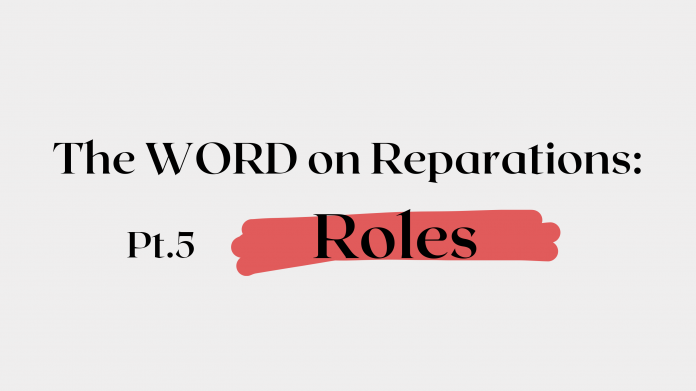Roles. We each have a role to play in the issues of systemic injustice that face the nation and our local community of the College of William and Mary.
A little over a year ago, the Student Assembly formed the Reparations Committee. As a university administrator and the advisor to SA, part of my role is paying close attention to activities and initiatives of student organizations that come with (any) level of complexity. A student-led committee exploring Reparations? That definitely checks the complexity box, and I started attending meetings.
As an administrator, my role can periodically put me directly in the path of disagreement with students. My role often requires me to enforce rules and students often push up against those rules. So, you might be surprised to read that I absolutely believe that the College (and the world) need more people to play the role of provocative change agent. Yet, “provocative change agent” will never be a description anyone assigns to me. I am slow, steady and incremental in my work and life. My best work is done in places where I get to build sustained relationships and refine systems and processes with the people around me. The problems facing our nation and the opportunities (and complexity) of reparations require a different skill set than slow, steady and incremental. Disruptors of the status quo can better elevate our pressing issues and bring attention to the gaps. Disruptors can also make it uncomfortable. But this discomfort is an essential part of an ecosystem made up of imperfect humans.
Earlier this year, I stumbled across The Social Change Ecosystem Map from the Building Movement Project. The introduction to this map reads:
“In our lives and as part of movements and organizations, many of us play different roles in pursuit of equity, shared liberation, inclusion, and justice. And yet, we often get lost and confused, or we are newcomers to ongoing social change efforts and don’t know where to start, or we are catalyzed into action in the midst of a crisis in our community.”
This spoke to me. Being lost or confused and not knowing the “right” thing to do resonated. Not doing anything because I’m scared to do the wrong thing is a challenge I’ve always had to combat. The roles articulated in the Social Change Ecosystem Map helped me to be more cognizant that there isn’t one best way to contribute; there is more than just the disruptor. Indeed, all too often those who are most affected by these issues experience severe burnout. Maybe you are a healer, a storyteller, a frontline responder, a caregiver or a disruptor. There is no one way to make progress. We need everyone and every role.
As a middle-aged white woman (and administrator) of some not insignificant privilege, I can’t possibly label myself a guide to the experiences of our BIPOC students, alumni and community members. Despite all the catching up I still have to do, I can use my experience and privilege to serve as a guide to navigating the College. Completing the plan for reparations will help the College move forward creating equity, liberation, justice and solidarity for the community. And this work necessitates many roles. Within the College ecosystem, my role is as a guide to the College’s students. We all have a role to play — don’t let your position, title, lack of knowledge or fear of inadequacy keep you from leaning into the role that you can play best.
Anne Arseneau graduated from the College of William and Mary in 1989 and has worked at the College since 1997. She works in Student Leadership Development where she supports students in the practice field working to make positive change in the groups, causes and communities that are important to them. Email Anne at aharse@wm.edu.

